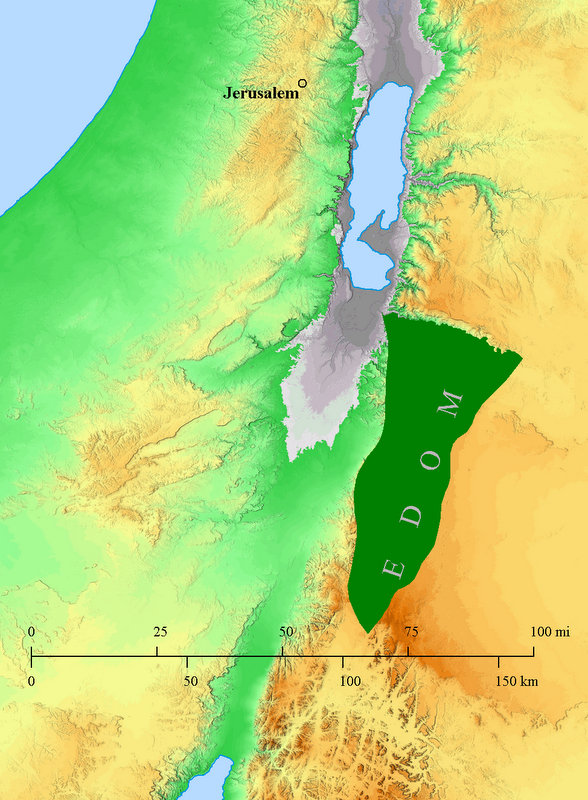Remember, O LORD, against the Edomites the day of Jerusalem’s fall, how they said, “Tear it down! Tear it down! Down to its foundations!” O daughter Babylon, you devastator! Happy shall they be who pay you back what you have done to us! Happy shall they be who take your little ones and dash them against the rock! Psalm 137:7-9
In Edom (the biblical name for what we call southern Jordan), a Bedouin leads his camels across the desert. Edomites were descendants of Esau, twin brother with whom Jacob feuded bitterly. Generations later, when the Israelites tried to come through Edom on their way from Egypt to Canaan, Edomites rudely turned them away (Numbers 20:14-21). Unless something or someone creative breaks the cycle of fear and mistrust, hatred gets passed on from generation to generation.

Israel’s bitterness against Edom is searing in Psalm 137, written when Israelites were captives in Babylon. Edomites—neighbors and relatives of Israel—had joined the Babylonians to destroy Jerusalem in 586 BC.
Other biblical writers savor the thought of revenge against Edom. In Isaiah 63:1-6 a voice asks the divine horseman returning from Edom, “Why are your robes red, and your garments like theirs who tread the wine press?” The warrior says, “I trod [the Edomites] in my anger and trampled them in my wrath; their juice spattered on my garments, and stained all my robes.”
This is awful stuff. But it may be necessary for such texts to be in our Bible. CNN daily gives us images as gruesome as Isaiah 63, and countless innocent people suffer. Biblical poetry puts into words the rage of people violated—whether ancient Jews conquered by Babylon, or survivors of genocide, or people pushed off their homeland.
Rage texts in the Bible do not signal that the urge for revenge is desirable; it simply is normal and real. Deeply violated people need to find their experience represented within the scriptures of a faith community. The faith community must not rush wounded people past rage to premature forgiveness. Injustice needs to be acknowledged, lamented, and addressed.
But the faith community also holds within its sacred texts a long-term vision of forgiveness and healing. In the Old Testament we find magnificent stories of reconciliation, such as Joseph forgiving his brothers (Gen 45). The story of Jacob and Esau (father of the Edomites) forgiving each other is compelling (Gen 33). We find prophecies about healing of the nations, and restoration of international justice (Isa 11, Mic 4). Hopes for a peaceable kingdom are what Jesus brought to practical reality with his teaching on the kingdom of God.
Rather than deleting blood-and-guts passages from our Bible, we can follow the whole trajectory of the Bible story and remember that it ends with a healing of the nations. We need to be sure we are moving along God’s shalom arc toward that reconciliation, not back into the weary cycle of violence and recrimination.
© 2014 J. Nelson Kraybill *******************************************
 For upcoming tours, see:
From Nazareth to Rome: Holy Land, Empire and Global Mission, with Pastor Nelson Kraybill – November 3-15, 2014
For upcoming tours, see:
From Nazareth to Rome: Holy Land, Empire and Global Mission, with Pastor Nelson Kraybill – November 3-15, 2014
Holy Land (Jordan, Israel & Palestine) with Pastor Nelson Kraybill – November 5-16, 2015

I think we are looking for something that is meaningful and positive during this recent crisis in the Holy Land that we love. Thank you for your wise interpretation.
LikeLike
One of your best blogs so far, and so timely.
LikeLike